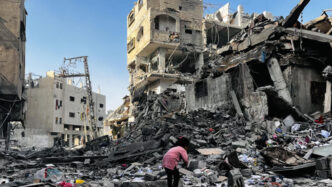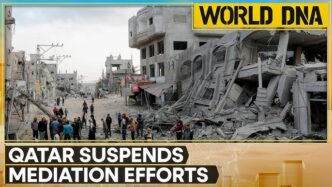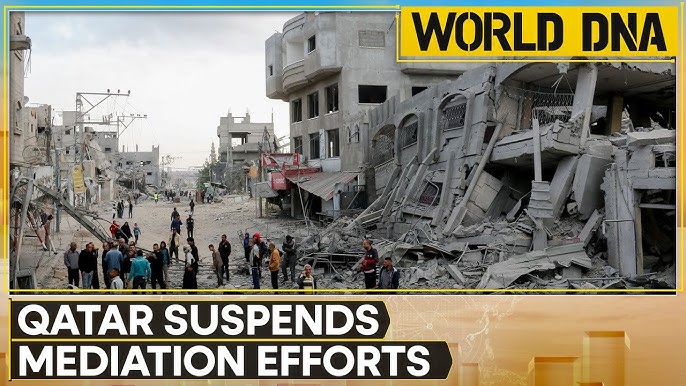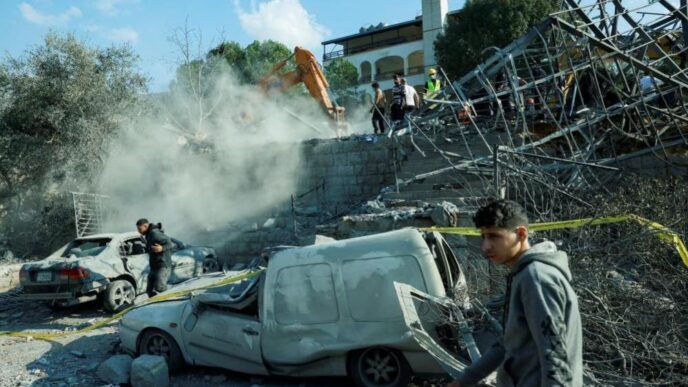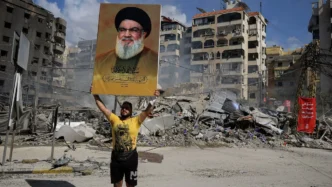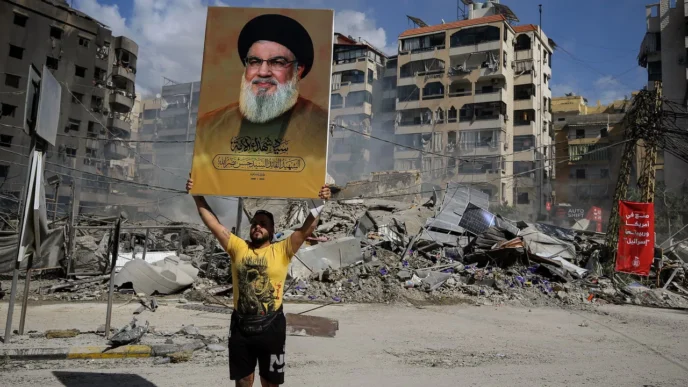Israeli airstrikes: At least 40 people were killed in Israeli airstrikes in eastern Lebanon on Wednesday, according to Lebanon’s health ministry. The Israeli military said the strikes targeted Hezbollah operatives and infrastructure in Baalbek and Bekaa, both in the country’s east.
Lebanon’s Culture Minister reported that one strike caused severe damage to an Ottoman-era building in Baalbek, near the Roman ruins. Baalbek is a UNESCO World Heritage site. The strikes also hit southern Beirut, where evacuation warnings were issued. Israel claimed to have targeted Hezbollah command centers, weapons depots, and other infrastructure.
Later that day, images from Beirut showed a giant fireball and thick black smoke rising into the night sky after the strikes.
Israeli airstrikes on Hezbollah
In northern Israel, Hezbollah fired a rocket that killed an Israeli man near a kibbutz. The strike came after Israel attacked a four-story apartment building in Barja, a coastal town south of Beirut. Lebanese Civil Defence reported recovering 30 bodies from the building. The building had been sheltering displaced families, many of whom were killed in the attack.
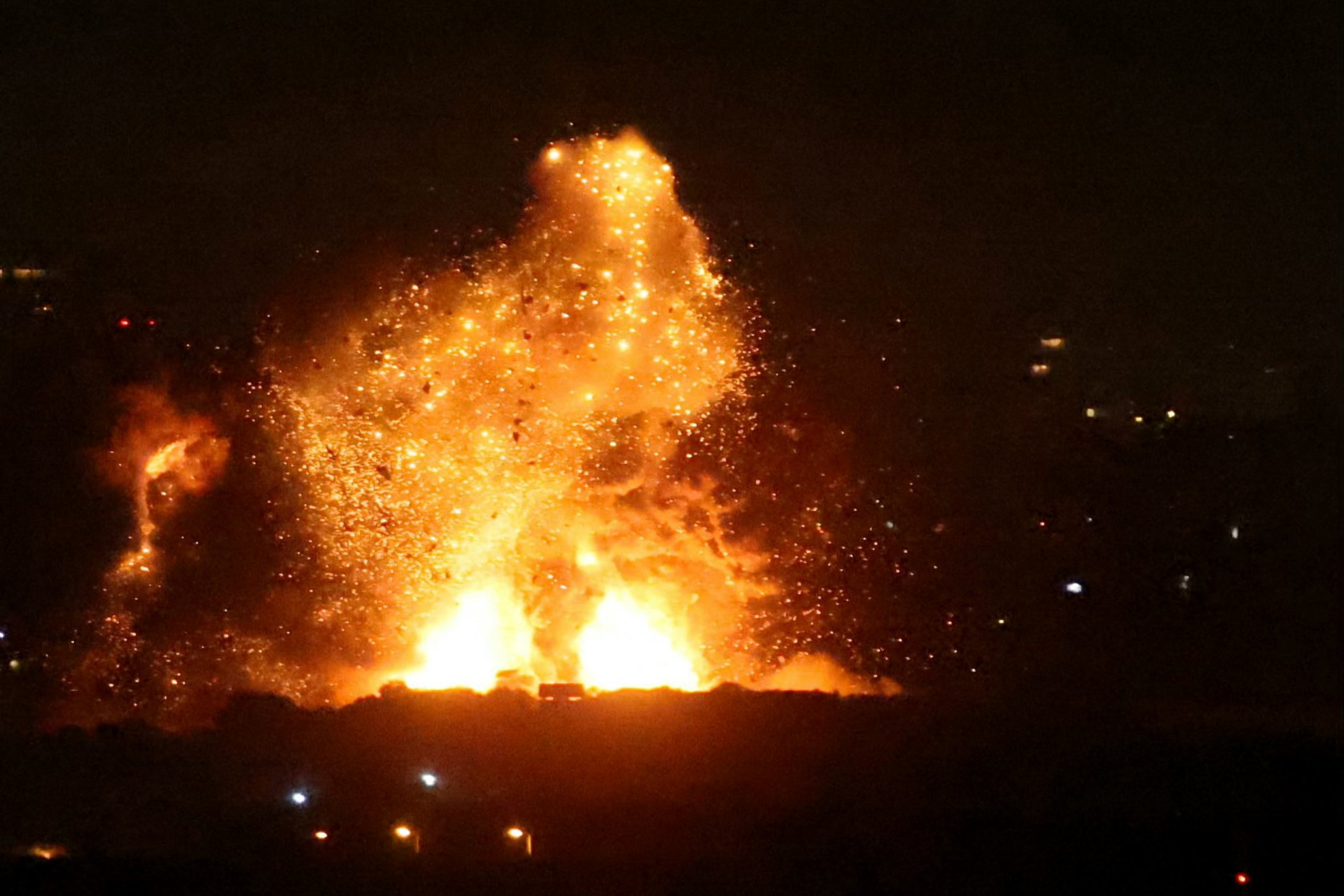
One resident, Moussa Zahran, described the moment when his son and wife were injured by falling debris. He said he managed to rescue his family by removing heavy rocks and handing them to rescue workers.
The Lebanese health ministry later reported that 40 people had been killed and 53 others injured in Israeli airstrikes across Bekaa and Baalbek. Among the dead were 16 in the village of Nasriyah and 11 in Baalbek city.
Israeli airstrikes on Lebanon Building

The strikes also damaged the Manshiya building, a historic Ottoman-era structure near Baalbek’s Roman ruins. Minister Mohammad Mortada called the damage an “irremediable loss” to Lebanon and world heritage. The 19th-century Palmyra Hotel, also near the ruins, was also hit, and two fatalities were reported.
On Thursday morning, the Israeli military said it had killed 60 Hezbollah fighters in Baalbek and other areas north of the Litani River. They also targeted rocket launchers and weapons storage facilities. The military claimed to have killed a senior Hezbollah commander in the southern border area.
Read more: Gold Prices Struggle Amid Market Optimism and Fed Expectations.
Meanwhile, Hezbollah’s secretary-general, Naim Qassem, said the group was ready to continue the fight. He stated that “only the battlefield” could end the conflict, rejecting political solutions.
On the Israeli side, at least one man was killed by a Hezbollah rocket near the town of Kfar Masaryk, south of Acre. Another missile hit a car park near Tel Aviv’s Ben Gurion International Airport, though airport operations were unaffected.

Since the conflict’s escalation in October 2023, more than 2,400 people have died, and over 1.2 million have been displaced in Lebanon. Israel has also targeted key Hezbollah leaders and infrastructure. The conflict began after cross-border attacks between Israel and Hezbollah, sparked by the war in Gaza.
Israel’s military aims to secure the return of residents displaced by Hezbollah rocket fire in northern Israel, which escalated after the deadly Hamas attack on Israel on October 7.
